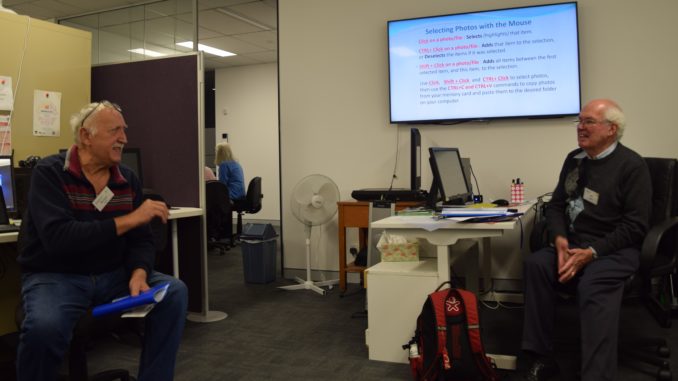
The Parramatta Computer Pals for Seniors program continues to do its small part to help close the digital age gap, twelve years after the program was founded. However, the program fears an uncertain future with a decline in the number of volunteers and an increase in the digital literacy of next generation.
The Program
The Parramatta Computer Pals for Seniors program (Parra Pals), is self-sustaining and run by a group of dedicated volunteers. Often classes comprise of anywhere from two to six members, one or two volunteer helpers and a class instructor.
A suggestion box is located on the right of the small makeshift classroom that the program occupies, provided to them for free by the Parramatta Council. President of the program, Deborah Martin is happy to report that there are several new suggestions each month which help to guide the entire program as well as new subjects for class to expand upon.
President Deborah recalls the evolution of classes beginning from simple instruction on operating systems of a PC, ‘back then it was Windows XP and not as much of the mobile devices, so we worked with people through Windows 7, Windows 8 and now we’re Windows 10 as well as Apple Macs’. Classes have now expanded into a variety of technology options and platforms. From general courses on operating systems like Android and IOS, to more specific courses to navigate these operating systems on phones to niche lessons on specific functions like transferring photos between devices.
All courses are designed by the class instructors who draw from supporting material provided by the Australian Seniors Computing Clubs Association. According to long-time volunteer trainer and Training Course Coordinator John Bayley, the trainers often review the courses to account for constant updates in operating systems and programs. The course program is given to each student in the form of manuals, which Deborah has found quite effective in helping her students retain the instruction she gives in class. The instructors who all have experience in using technology, are passionate about helping their peers who help to guide the direction of classes.
The volunteer assistant trainers are also an important part of these lessons. Volunteers like Dawne Zotz and George Karras are a large help to their trainers. Especially in larger classes, they provide extra support to each member so that nobody falls behind. George says ‘you can’t teach people what they don’t want to learn, but if you can show some guidance, some initiative and enthusiasm people follow that.’
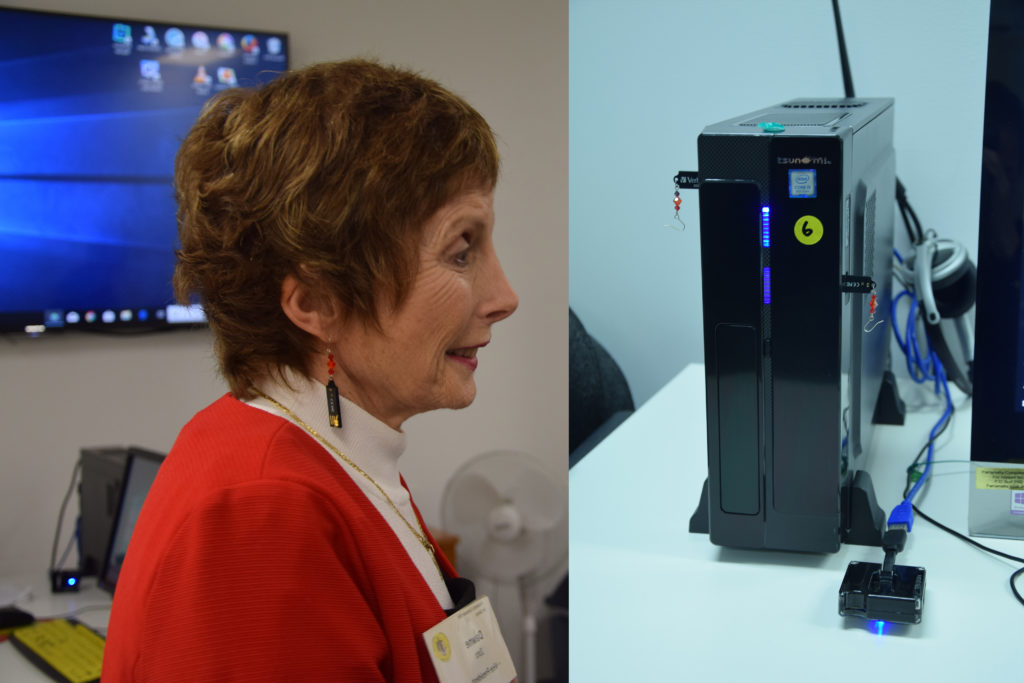
The Digital Gap
The Australian Bureau of Statistics Census QuickStats 2016 on the area of Parramatta indicate that 21% of total population is aged 45 and over. ABS numbers also indicate that only 55.2% of people 65+ use the internet in Australia, which is low considering the national average is 86.5%.
Though a Telstra study for Digital Inclusion indicates that inclusion rates are higher than the national average between the ages of 14-49, however the rate is 2 points lower than the average for those between the ages of 50-64. More specifically retirees have a score of 46, 14.2 points lower than the average. These statistics, in conjunction, indicate a concerning gap in digital literacy for seniors.
Programs like Parra Pals is dedicated to helping these seniors advance their skill, and two keys aspects to this are; accessibility and the socialisation. Accessibility is important when considering some of the older students have varying physical ability like the vision or hearing impaired. Adjustments are made accordingly to adapt to the student’s unique needs which include;
- Altered keyboards with larger keys that are yellow coloured to contrast with larger black lettering to be of greater visual aid
- A microphone and speaker systems to help the hearing impaired
- Trainers with the ability to adjust settings like, enlarging type point on screens and slowing down the mouse to make it less sensitive to small tremors in the hand.
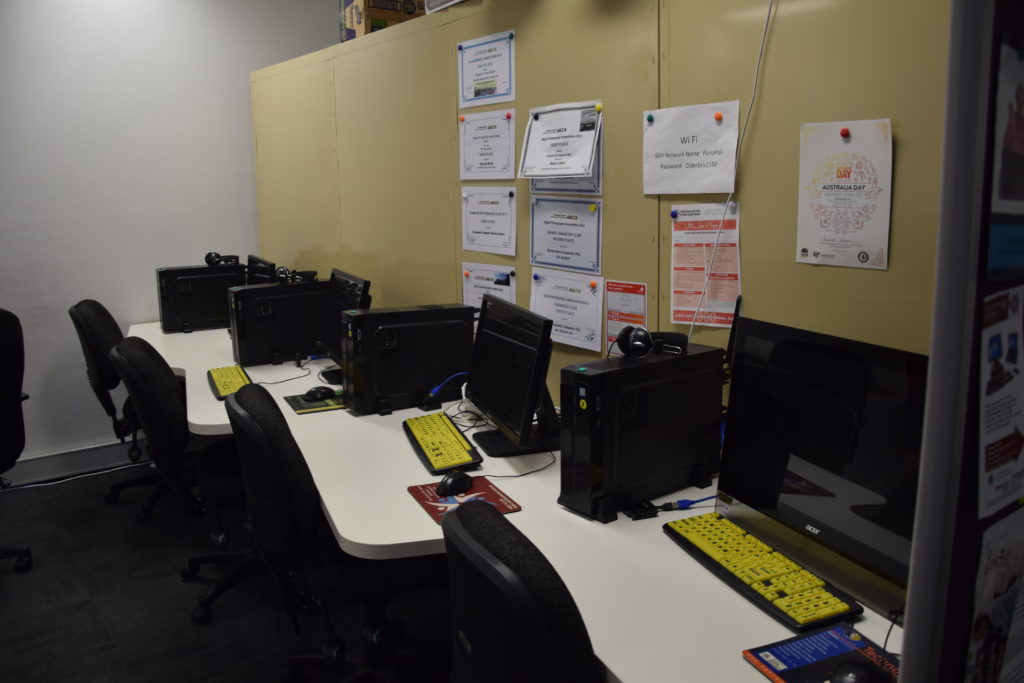
President Deborah also addresses the dual function of the Parra Pals program, ‘we try to be a club that provides a social aspect as well’. Aside from enhancing their use of digital platforms like the internet, the program also puts great effort into providing members with options for socialising outside of class.
The volunteering committee, the assistant trainers and the members all cite this as a motivating factor which keeps them coming back. Katalin and Mihaly Balogh, an older Hungarian couple who attend class say they like attending because ‘we want to socialise with other people, especially other nationalities of the same age, we have the monthly meetings, the Christmas parties and a couple of excursions so it’s not just the computer we have other choices as well’.
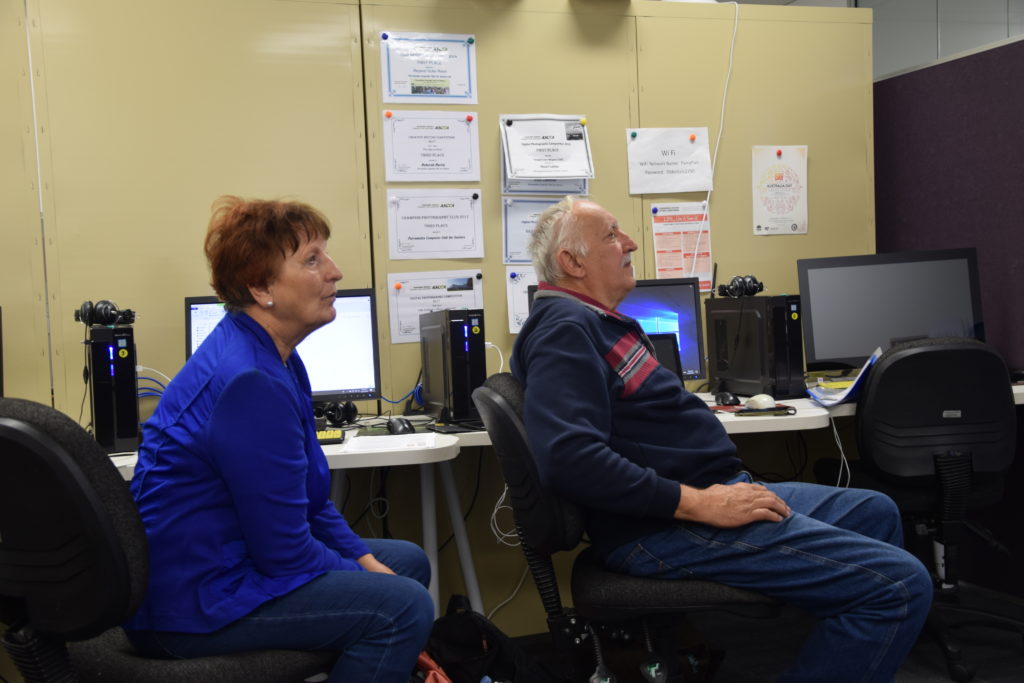
The Difficulties
The difficulties that the program faces are the same problems seniors face normally when using technology and systems, and if they aren’t members of this or a similar problem they face them all alone. Ever changing systems prove to be one of the largest obstacles, Parramatta Pals attempt to face these issues head on.
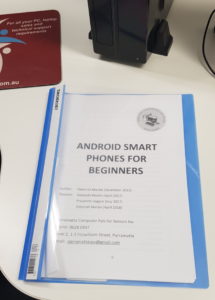
Trainers like John adjust to the changes as much as they can. He explains the difficulty of keeping up with relative updates, ‘the digital photo course, I’ve revised that about 10 times over the years and it’s now almost irrelevant’. Older students have trouble adjusting to the rapidly changing technology. Once they’ve gotten familiar with one software, it updates. They find themselves frustrated and back at square one due to the changes, as Katalin is well aware, ‘when you are 75 it’s a bit hard to get the new technology and you need it because these days anywhere you go, its “okay, do it on the computer”’.
As such the committee adjusts to more classes to expand on subjects but this creates more problems as even seniors don’t always have the time, prioritising visiting family like grandchildren and other commitments instead. Both John and Deborah also reflect their committee members concern at the lack of volunteers, John says ‘we try and have helpers on a 1 to 2 basis but lately we’re down to one because of the availability of volunteers’.
More volunteers mean that Parra Pals could have a solution to the time commitment issues of their members; they could hold more classes in a day, resulting in multiple classes a week for a single subject, instead of spreading them out over multiple weeks. Deborah worries about what this shortage of volunteers will leave the future of the program.
This volunteer shortage is not the only concern that Parramatta Pals face. The city of Parramatta is evolving, and a tumultuous transitioning council proves for a shaky ground for the program. The current space they occupy, as previously mentioned is rent free but Deborah is uncertain about their status in relation to the new council building currently under construction, ‘it’s very hard to get an answer out of them if we’ll have a space in the new building’.
Yet the news is not all negative, as per the Parramatta Pals monthly newspaper ParraChatta, there are contingencies in place. The committee has ensured that they have saved money in case they need to pay for a space for the program in the future and President Deborah also has ideas for the general future of the program itself. The social aspect of the program is to playing a large part in considerations about the future of the club, president Deborah says ‘I think we might evolve. Once you leave work… there’s still a need for people to keep up to date, to learn new programs and new systems. There’s also that… you lose a lot of social contact so maybe we do more social stuff I think that’s the direction we go in’ as well as a tentative expansion into classes for Apps already in effect.


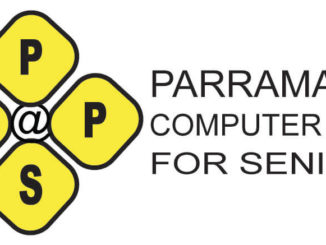
Be the first to comment